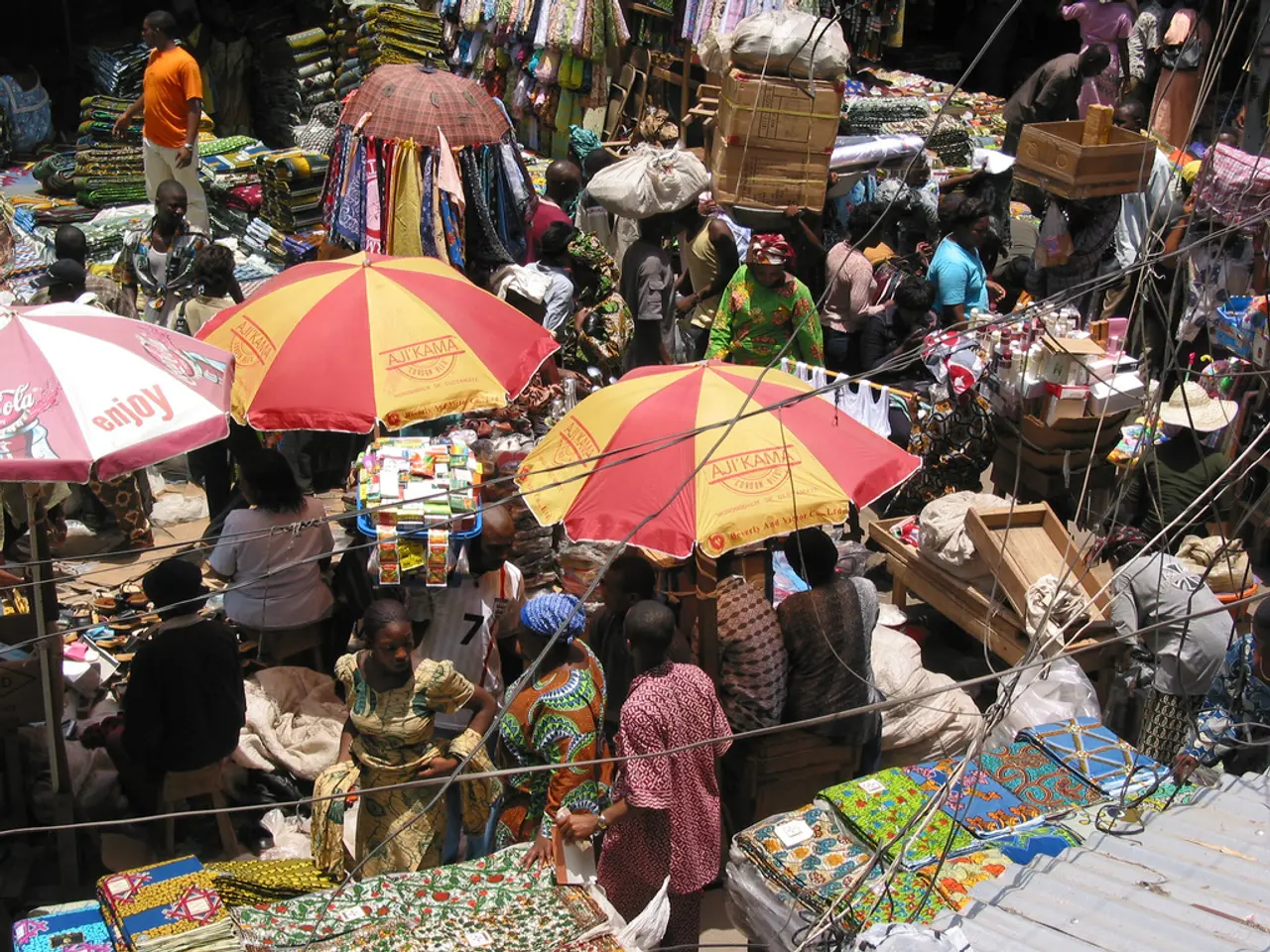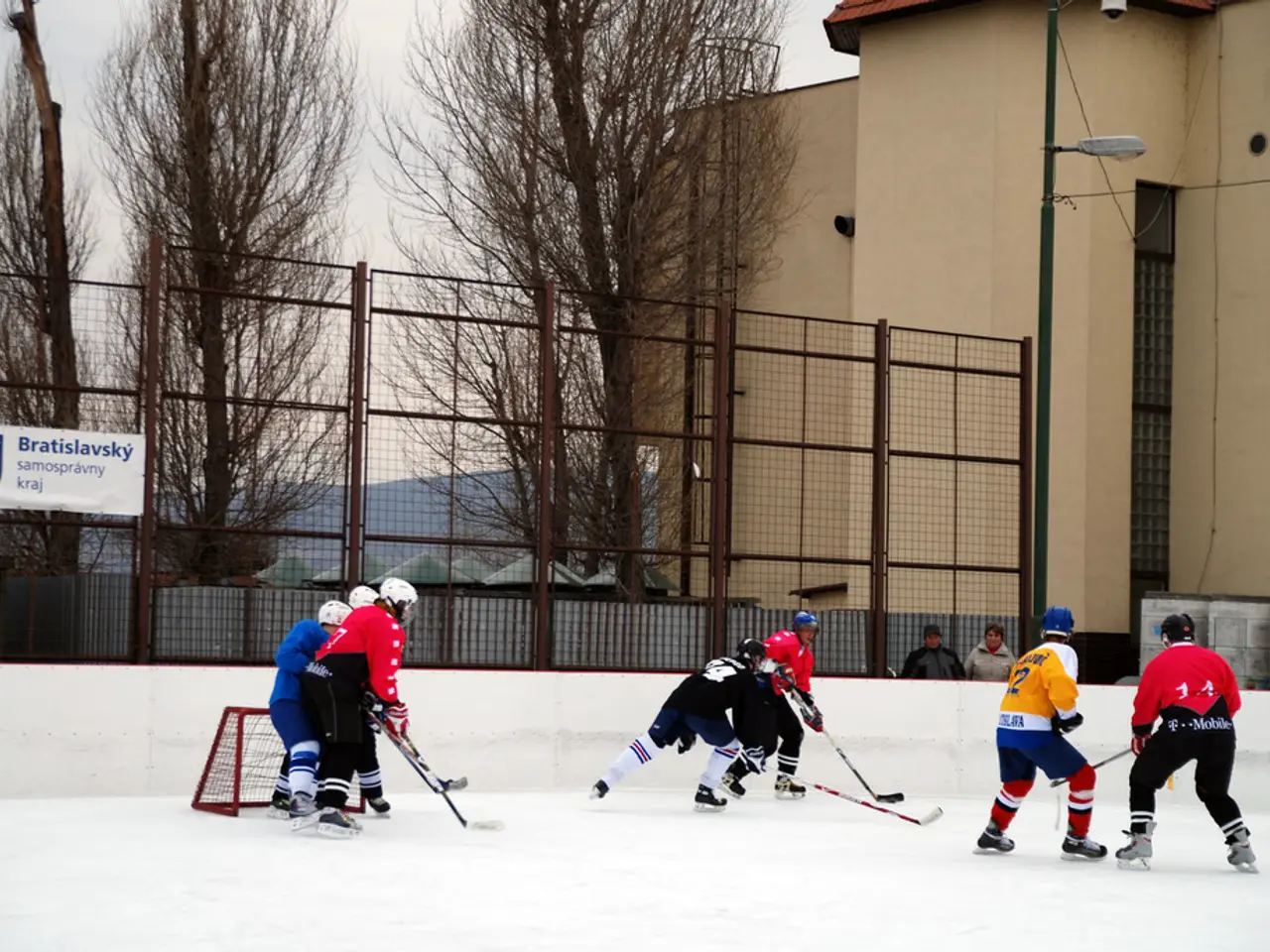Steel demand in Russia projected to decrease by 10% in 2025, according tometalworking specialists.
In the heart of Russia's industrial sector, the steel industry is facing challenging times. According to recent reports, about 45% of metal producers' production capacities were initially focused on exports, a fact that is now proving to be a double-edged sword.
The stagnation of steel exports in 2025 and weak domestic demand have led to a decrease in steel prices in Russia. This situation is further compounded by the anticipated 10% decrease in steel demand in Russia in 2025 compared to 2024, as predicted by Russian Steel.
The decline in the construction and machinery sectors, attributed to high key interest rates, is another factor contributing to the decreased demand for steel. This has resulted in a significant decrease in the profits and earnings of major steel producers such as Severstal, NLMK, and MMK.
For instance, Severstal's EBITDA in January-March 2025 was 39.4 billion rubles, a 40% decrease from the previous year, and its free cash flow was -32.7 billion rubles, a significant decrease from the previous year. Similarly, MMK's net profit in Q1 2025 was 3.1 billion rubles, a 7.6 times decrease from the previous year, and its EBITDA was 19.8 billion rubles, half of the previous year's amount.
The challenges in the steel sector are not limited to profitability issues. Steel consumption in 2024 decreased by 6% compared to 2023, to 44 million tons, and it is expected to further decrease to 39.6 million tons in 2025. In fact, consumption may decrease to its lowest level since 2016, when the corresponding indicator was 39 million tons.
To counteract these challenges, Severstal, NLMK, and MMK initiated a new anti-dumping investigation into galvanized steel products from China and Ukraine in September 2024. While the specific reasons for this investigation are not publicly disclosed, such investigations are typically initiated by domestic producers to determine whether imported steel products are being sold at unfairly low prices, thereby impacting the local steel industry through unfair competition and loss of market share.
The investigation aims to assess whether dumping is occurring and whether it causes material injury to the domestic producers, which could lead to the imposition of anti-dumping duties to protect local industry. According to forecasts by the company "Eiler Analytics," the price of steel from Russian producers may decrease by 11% this year.
Ruslan Nozdrin, Gazprombank Investments' investment consultant, has stated that Russia's black metal sector is facing challenges due to increased production costs due to inflation. These challenges, combined with the declining demand and profitability issues, paint a grim picture for the Russian steel industry in the near future.
In the midst of these challenges, Severstal, NLMK, and MMK have opted for a new strategic move by initiating an anti-dumping investigation into galvanized steel products from China and Ukraine. This action is aimed at combating potentially unfair competition and maintaining market share within the Russian steel industry.
Amidst the predicted 11% decrease in steel prices from Russian producers this year, as suggested by Eiler Analytics, the decline in sports such as construction and machinery, combined with high interest rates, stagnant exports, and weak domestic demand, have contributed significantly to the decreased profits and earnings of major steel producers.







